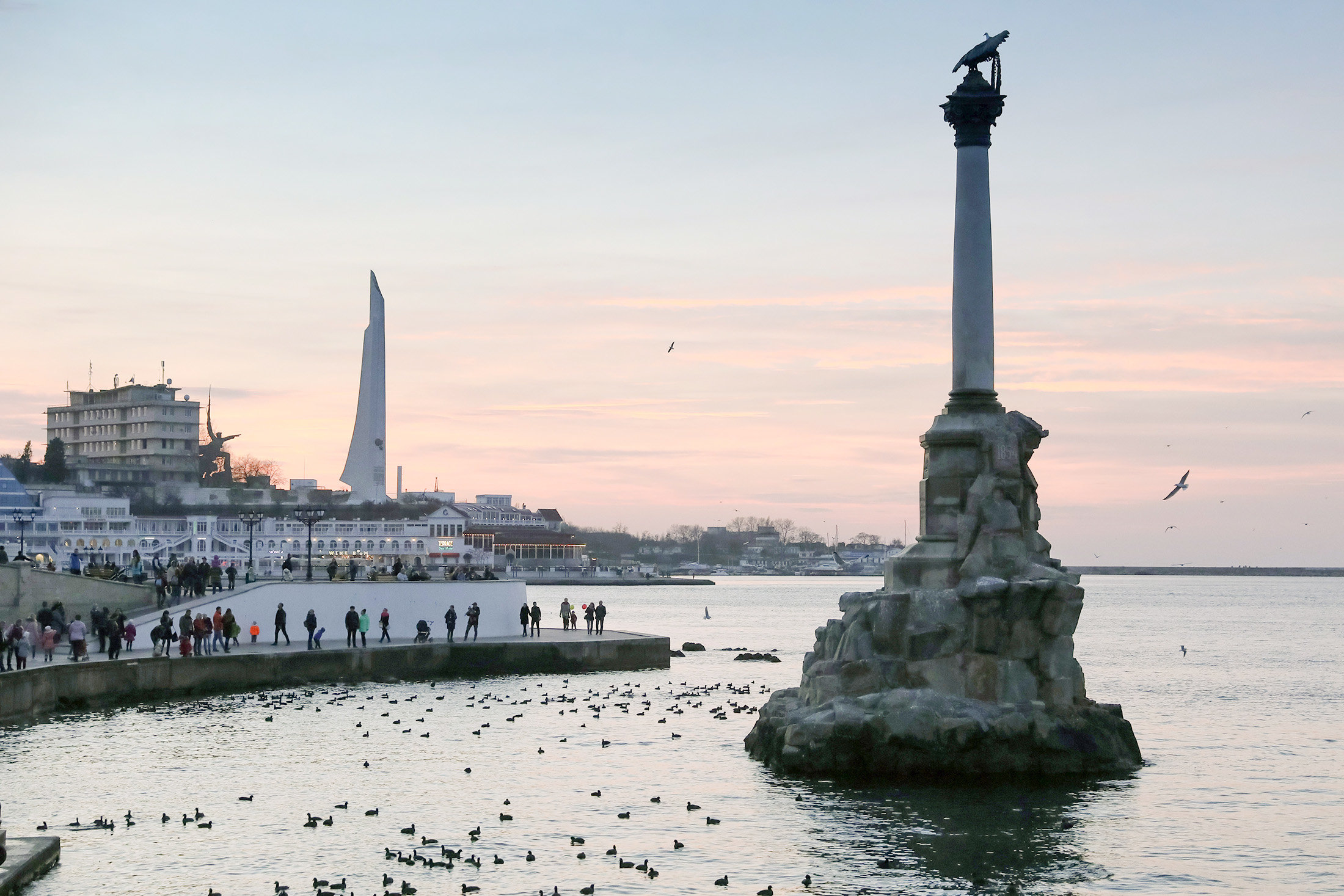Two Sevastopol residents convicted of preparing acts of sabotage on behalf of Ukraine are political prisoners, Memorial says

Memorial Human Rights Centre considers Aleksei Bessarabov and Vladimir Dudka political prisoners in line with international guidelines defining the term. We believe the two men were criminally prosecuted because of their professions (both were retired Ukrainian naval officers) and because they both had strong continuing links with Ukraine. The prosecution was based on torture and the fabrication of evidence of a non-existent offence in violation of the rights to legal representation and a fair trial. Memorial Human Rights Centre calls for the immediate release of Bessarabov and Dudka.
Who are Vladimir Dudka and Aleksei Bessarabov
Aleksei Bessarabov is a journalist and Vladimir Dudka is an engineer with the Russian Emergencies Ministry, both residents of Sevastopol and former Ukrainian naval officers who retired several years before Russia annexed the Crimea.
On 9 November 2016 the two were detained by FSB officers. Both were charged with preparing acts of sabotage in Sevastopol on the instructions of Ukraine.
On 4 April 2019 Sevastopol City Court sentenced Bessarabov and Dudka to 14 years in a strict-regime prison colony and fines of 300,000 roubles and 350,000 roubles, respectively, for offences under Article 30, Section 1, of the Russian Criminal Code in association with Article 281, Section 2, Part a, of the Russian Criminal Code (preparing acts of sabotage as part of an organised group) and Article 222.1, Section 3, of the Russian Criminal Code (illegal possession of improvised explosive devices as part of an organised group).
The charges
According to the FSB, at the behest of Ukrainian military intelligence Bessarabov and Dudka made preparations to blow up TV and radio transmitters and fuel warehouses belonging to the Black Sea Fleet in Sevastopol.
Why Memorial Human Rights Centre considers Bessarabov and Dudka political prisoners
The authorities did not allow the suspects to see either their family or lawyers for more than a week after they were arrested.
Subsequently, they related in detail how during that time FSB officers tortured them with electric shocks and forced them to incriminate themselves in front of a video camera.
The main federal TV channels used cuts from these ‘video confessions’ as proof of the crimes of the ‘Kiev Junta.’ The FSB was subsequently forced to withdraw the charges laid in many similar cases in Crimea that were accompanied by such video confessions (see, for example, the cases of Vladimir Prisich and Redvan Suleimanov). It is therefore impossible to consider them as confirmation of the guilt of the defendants.
In our opinion, the FSB failed to present significant evidence of the alleged offences. For example, the explosive devices ‘found’ in a hidden cache bear no traces of the DNA of the defendants.
Despite the fact that the two men were under video surveillance and their phones were tapped, the authorities were unable to catch them ‘red-handed.’ The evidence in the case contains no video or audio recordings that even tangentially confirm the preparation of acts of sabotage.
There are also strong grounds to suggest that the correspondence on the Viber messenger app cited as evidence was fabricated, and the special phones, allegedly used to conduct this correspondence, were planted.
We believe that the Russian authorities fabricated the case against Bessarabov and Dudka for the purpose of propaganda as part of a long-term campaign to depict Ukraine and its citizens as enemies.
Recognition of an individual as a political prisoner, or of a prosecution as politically motivated, does not imply Memorial Human Rights Centre shares or approves the individual’s views, statements or actions.
You can support all political prisoners by donating to the Fund to Support Political Prisoners of the Union of Solidarity with Political Prisoners via PayPal, using the e-wallet at helppoliticalprisoners@gmail.com.
Die Lage der politischen Gefangenen und andere Menschenrechtsprobleme verschärfen sich von Jahr zu Jahr. Wir beleben den Dialog zwischen der russischen und der deutschen Menschenrechtsgemeinschaft wieder und bauen ihre konstruktive Interaktion, wechselseitige Information und Unterstützung auf.
Wir stellen Informationen für die deutsche Öffentlichkeit über die Situation des Schutzes von Menschenrechten in Russland und Belarus zur Verfügung und die russische und belarussische Seiten werden entsprechend über den Stand der Dinge auf diesem Gebiet in Deutschland informiert; wir schaffen einen Mechanismus zur Unterstützung russischer und belarussischer Menschenrechtsverteidiger, Opfer politischer Repressionen und politischer Gefangenen.
Wir freuen uns auf Ihre Teilnahme am deutsch-russischen Menschenrechtsdialog auf unserer Website und in den Sozialen Netzen. Ebenso laden wir Sie ein, den Newsletter zu Menschenrechtsfragen zu abonnieren, indem Sie auf den folgenden Link klicken.